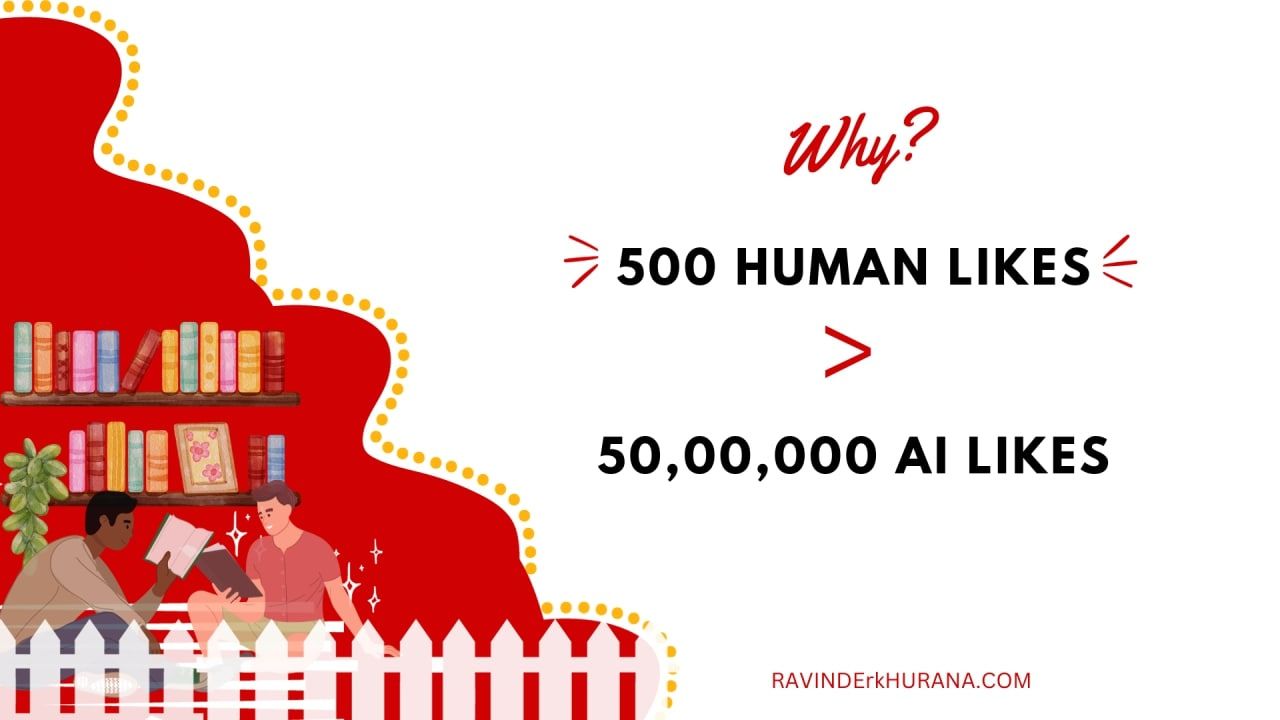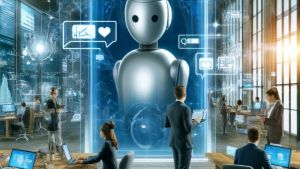Why 500 Human Likes 50,00,000 AI Likes?
Humans possess the ability to understand context, culture, and societal nuances, allowing them to create content that is culturally relevant and sensitive.
In an age overpowered by short-form content and the constant stream of information, the charm of holding a physical book and immersing oneself in its pages may seem to be decreasing. Reading books indeed demands time, effort, and, most importantly, undivided attention—a precious commodity in a world where endless distractions and conditions like hyperactivity and ADHD are prevalent, especially among children.
The rapid advance of AI technology has further complicated our relationship with content. While AI generates content at a surprising pace, it often lacks the depth and richness of a well-crafted book. The result is an abundance of mass-produced content that fails to capture the essence and narrative artistry found in traditional literature.
This is precisely why many giant businesses still value human-generated content over AI-generated output. Here are a few reasons why :
- Authenticity – Human-created content often reflects a genuine voice, personal experiences, and unique perspectives that AI cannot replicate. It has the power to convey emotions, nuances, and the human touch that resonates with readers.
- Creativity – Human writers have an innate ability to think creatively, offering fresh and innovative ideas that challenge the status quo. AI, while proficient at data analysis, lacks the creativity to generate truly original concepts.
- Contextual Understanding – Humans possess the ability to understand context, culture, and societal nuances, allowing them to create content that is culturally relevant and sensitive.
- Connection – Well-written human content can foster a profound connection between the author and the reader. It often tells a story, shares personal experiences, and inspires empathy, creating a lasting impact.
- Ethical Considerations – Human writers adhere to ethical guidelines, ensuring that content aligns with moral values and societal norms. AI, on the other hand, can inadvertently produce biased or harmful content.
While AI undoubtedly has its place in content generation and analysis, the preference for human-generated content persists because it offers qualities that are difficult to replicate. In a world flooded with information, the constant attraction of a well-crafted book or a thoughtful article written by a human author reminds us of the lasting power of human creativity, understanding, and connection.




